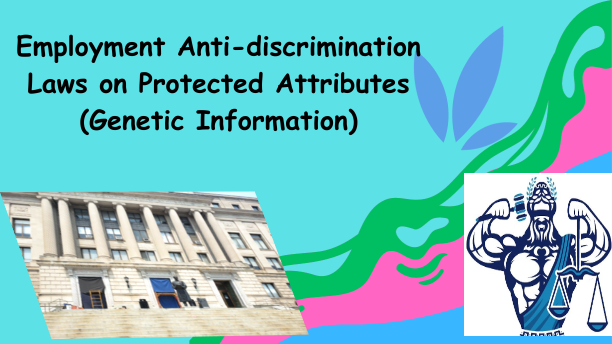What is Whistleblowing?
Whistleblowing is the act of alerting someone of suspected wrongdoing. Wrongdoing can mean coercion, illegal activities, unsafe practices, fraud, abuse, and more, creating a danger to the public.
Internal whistleblowing occurs when the party informed of the concerning behavior is within the same group or establishment, for example, within the same place of employment.
External whistleblowing entails alerting someone outside the establishment of suspected wrongdoing.
Whistleblowers are significantly protected, with more protection offered all the time, so that they are not discouraged from coming forward to report behavior that could endanger or hurt the public or fellow employees.
The US Department of Labor and Whistleblowing
OSHA, or the Occupational Safety and Health Administration, is one of five agencies that enforces whistle-blower and anti-retaliation laws. The Whistleblower Protection Program includes more than twenty whistleblower statutes that protect the rights of those who bravely step forward to report suspected concerns.
These laws prohibit employers from retaliating against the whistleblower in any way, and adverse actions are also addressed.
What is Retaliation?
Retaliation occurs when an employer (or manager, supervisor, or other higher-up employee) fires an employee or takes other adverse actions against them after they speak up regarding concerns.
Retaliation can take on many forms, but the most common examples are firing, laying off, cutting back on hours, denying benefits or bonuses the employee is eligible for, intimidation or harassment, and more.
Some more intense retaliation examples may be making threats to the employee, reporting the employee to the police or immigration authorities, blacklisting the employee, which can interfere with the employee’s ability to continue in the industry, or reassignment to a less suitable position which can limit or end the employment of that employee.
What Are Examples of Whistleblowers’ Complaints?
Whistleblowers can be present in several industries. Common examples of whistleblowers are those in agricultural work, city, and county offices, military agencies, medical facilities, hospitality industries, and more.
Some of the common whistleblower topics include the health and safety of employees, hazards that are present and not being resolved, health insurance denials or issues, minimum wage infractions, youth or illegal-aged employment, overtime pay being denied, discrimination in the workplace, consumer product safety, food safety, and more.
Let’s say that you have noticed that your overtime pay is not accurate or non-existent on your pay stub. If this is a one-time mistake, it may have been an oversight or error in accounting. If it is happening over and over, you may want to report the issue but hesitate due to fear of retaliation.
Whistleblower protection is in place for examples such as these, so you are free to report illegal payroll practices within your workplace without worrying that you’ll lose your job or be treated poorly because of it.
Whistleblower Laws Recently Changed in New York
As of recently, laws surrounding whistleblowers and their protection have significantly expanded. New York joined other states, such as California and New Jersey, to further develop regulations to protect whistleblowers.
The definition of retaliation has expanded to include now taking actions or threatening to take actions against the employee regarding any future employment, contacting any US immigration authorities, and more. With these expansions, there is expected to be more litigation than ever before as a result.
Employer notification is no longer required if imminent and severe danger to public health or safety is a factor.
Suppose the employee strongly believes that reporting to the employer may result in physical harm or the employer destroying evidence. In that case, the employee is no longer required to notify the employer first in most cases.
The definition of employee has also been expanded to include former employees and independent contractors that work for the employer.
The extension of the statute of limitations regarding whistleblowing is also of importance. The statute of limitations is now two years rather than one year, giving more time to those considering pursuing lawsuits.
New York employers must also now post a notice of employee whistleblower protections, rights, and obligations in a place that is easily accessible and can be seen by all.
Potential damages that employees can now seek have been raised to $10,000. This amount includes punitive damages and civil penalties. The employee can also still seek attorney’s fees, lost wages, and more.
Where Every Case Matters Significantly
Our firm was predicated on smaller mom-and-pop clients. We wanted to give the attention that smaller businesses needed that most other firms wouldn’t touch. We also wanted to treat all smaller cases with just as much dedication and passion as more prominent clients.
As our clients grew, so did the demand for more extensive cases. We still pride ourselves on giving as much attention to detail and compassion along with a tireless work ethic to each and every case, regardless of the size.
We believe that each client should feel that their case is essential and they are cared for every step of the way. There are extensive laws in place that protect whistleblowers and for good reason. Without additional eyes on employers to ensure our safety isn’t endangered, we may run into more issues in our everyday lives than we can handle due to improperly conducting business.
If you feel you are experiencing retaliation or adverse actions based on whistleblowing, contact our top-rated law firm for employment law cases. You can rely on our team to treat your concerns with the dignity and perseverance they deserve.
Call our office at (314) 648-2586 today to learn more about how we can assist you.
 Professional Legal & Business Services And Representation - English & Espanol!
Professional Legal & Business Services And Representation - English & Espanol!

 314-648-2586
314-648-2586 CALL US NOW
CALL US NOW










